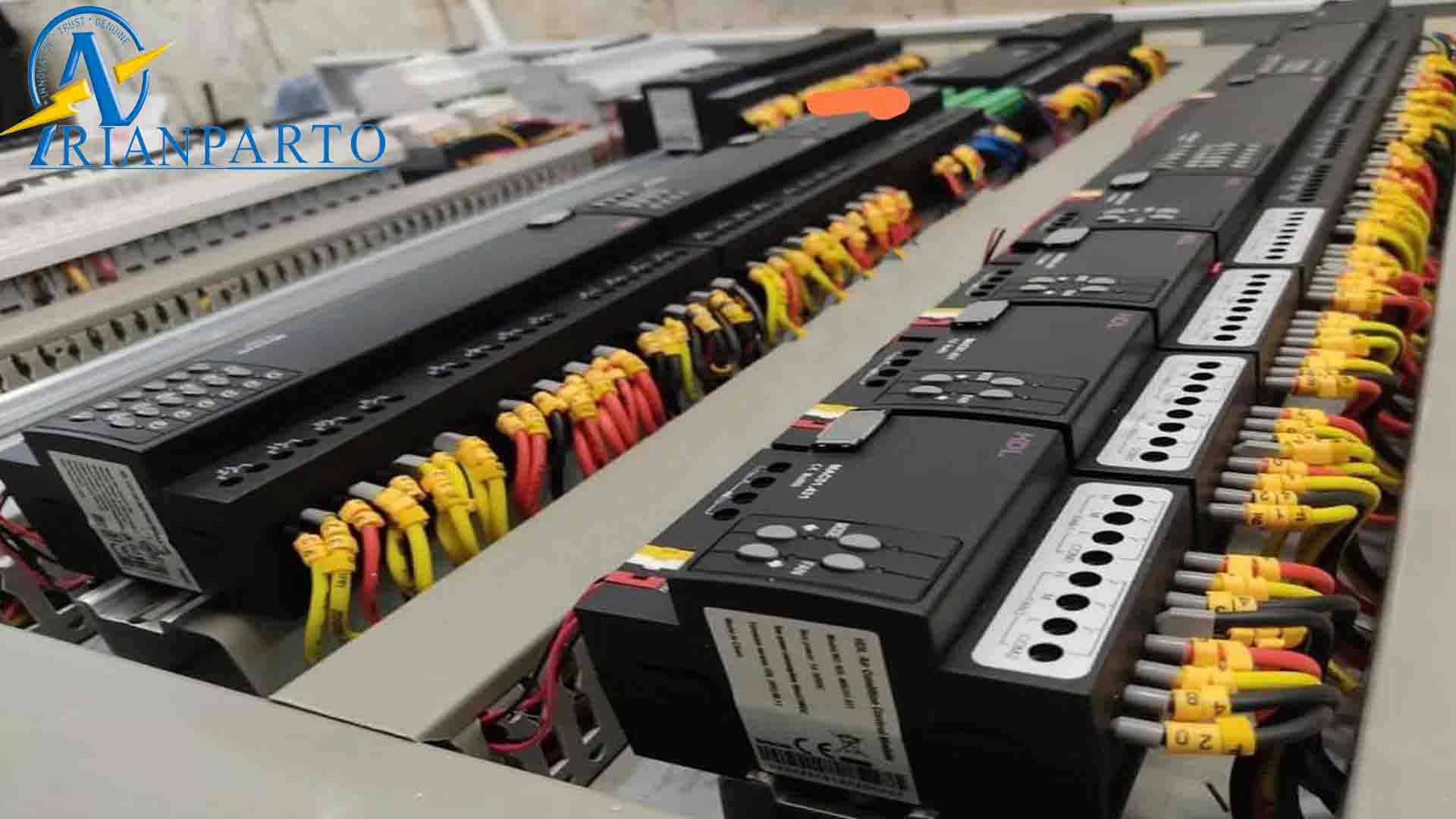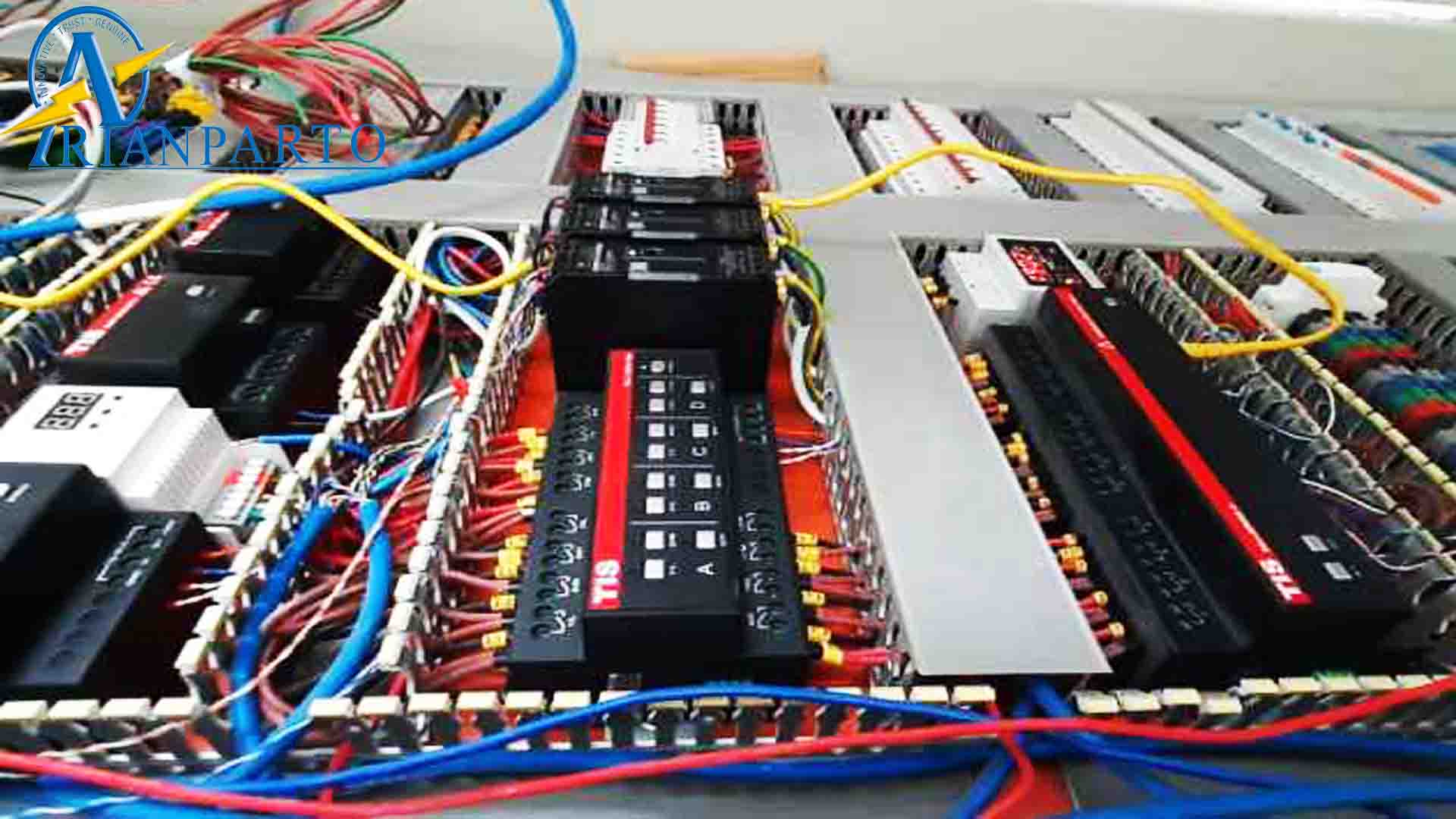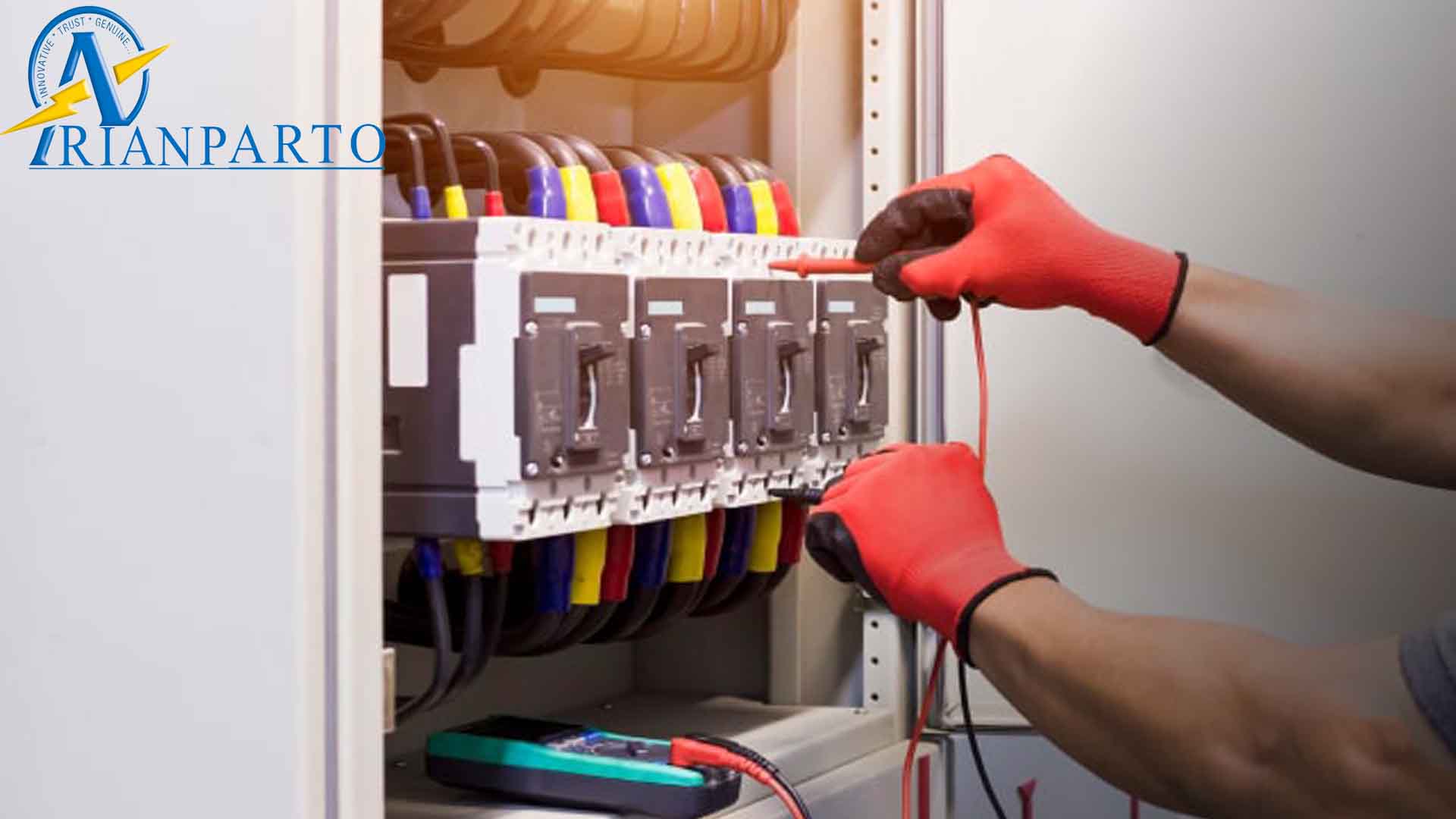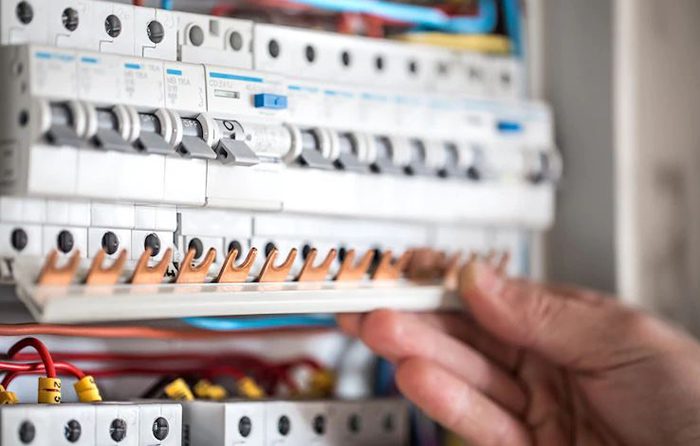Building Management System (BMS) switchboards are integral components in modern infrastructure, providing centralized control and monitoring of various building systems. These switchboards facilitate efficient energy management, ensuring optimal performance of HVAC, lighting, and security systems. By integrating advanced automation and analytics, BMS switchboards enhance operational efficiency, reduce energy consumption, and improve overall building sustainability. They are designed to meet stringent industry standards, offering reliable and scalable solutions for diverse applications in commercial, industrial, and residential settings. With the growing emphasis on smart buildings, BMS switchboards play a crucial role in achieving intelligent and sustainable building management
Smart Electrical Panel for Buildings
Nowadays, various types of electrical panels are used in different buildings, including high-rise buildings, commercial and office centers, industrial units, power plants, hospitals, and any place requiring electrical systems. One of the common types of panels installed in smart buildings is the smart building electrical panel. These buildings are those in which Building Management Systems (BMS) and Energy Management Systems (EMS) are fully installed and operational. Many of the smart processes in buildings are related to their electrical and mechanical systems, making it essential to have a solid understanding of how to implement and utilize smart electrical panels in this context.
The use of smart electrical panels in building electrical installations, especially for buildings with specific requirements, plays a crucial role in increasing safety, reducing maintenance costs, speeding up periodic services, and optimizing energy consumption. Therefore, the installation of these panels helps reduce the time spent managing electrical systems and eliminates the need for users to physically check and adjust the systems. These smart systems enable remote monitoring, automatic control, and energy savings. This article provides an in-depth look at the smart building electrical panel, its benefits, technical specifications, pricing, and the methods for purchasing it online.
Definition and Application of Smart Electrical Panels
A smart electrical panel is an advanced power distribution system that integrates intelligent monitoring, automation, and energy management capabilities to enhance efficiency, safety, and convenience. Unlike traditional electrical panels that simply distribute power, smart panels provide real-time monitoring, fault detection, and remote control of electrical circuits, reducing the need for on-site maintenance.
These panels are widely used in residential, commercial, and industrial buildings, as well as in high-rise structures, hospitals, educational facilities, and power plants, where reliable and efficient electrical distribution is crucial. By integrating with Building Management Systems (BMS) and Energy Management Systems (EMS), smart panels enable users to optimize power consumption, reduce wiring errors, and automate critical systems such as lighting and HVAC based on occupancy and demand.
Additionally, smart electrical panels help lower maintenance costs by extending service intervals and minimizing the need for frequent inspections. They also play a key role in reducing environmental impact by decreasing energy waste and improving overall sustainability. With their ability to streamline power management and enhance safety, smart panels are becoming a fundamental component in modern building infrastructure.
Benefits of BMS Electrical Panels

A BMS-integrated smart electrical panel offers numerous advantages, making it a crucial component of modern buildings. Some of the key benefits include:
- Energy Efficiency – By monitoring power usage and optimizing circuit loads, smart panels help reduce energy waste and lower electricity costs.
- Remote Monitoring and Control – Users can control electrical circuits and power distribution remotely via mobile apps, computers, or cloud-based platforms, eliminating the need for physical interaction with the panel.
- Reduced Need for Physical Switches and Sockets – In buildings using smart electrical panels, manual switches and sockets can be reduced or eliminated, as lighting and power connections are routed directly to the panel, allowing centralized remote control.
- Enhanced Safety – Built-in protection features such as fault detection, surge protection, and automated shutdown mechanisms prevent electrical hazards.
- Predictive Maintenance – Smart panels identify electrical faults before they become critical, reducing downtime and minimizing repair costs.
- Eliminating Unnecessary Energy Consumption – One of the leading causes of energy waste is leaving lighting and appliances on unintentionally. Smart panels allow users to remotely turn off forgotten devices, preventing excessive energy consumption and lowering operational costs.
- Reduced Maintenance and Infrastructure Costs – By minimizing the need for physical switches, sockets, and frequent maintenance, smart panels help reduce building infrastructure expenses over time.
- Integration with Renewable Energy – They facilitate the integration of solar panels, battery storage, and other energy-efficient technologies, enhancing sustainability.
- Environmental Benefits – Smart electrical panels play a key role in reducing environmental impact by lowering energy consumption, decreasing electrical waste, and supporting green building initiatives.
Technical Features of BMS switchboards
Smart electrical panels incorporate various technical features that make them stand out from traditional systems. These include:
Digital Metering – Tracks real-time energy consumption per circuit, offering insights into electrical usage for optimization.
Circuit Breaker Automation – Automatically shuts down circuits in case of faults, preventing damage to electrical components and enhancing safety.
Cloud Connectivity – Enables remote monitoring, data logging, analytics, and cloud-based control, making it easier to manage systems remotely.
Modular Design – Facilitates easy upgrades and expansion, allowing the system to evolve with new requirements.
Customizable Alerts – Provides notifications for overloads, short circuits, or system failures, ensuring users are always informed of potential issues.
Additionally, smart electrical panels are made up of various important components such as:
Miniature Circuit Breakers (MCBs) – These are used to disconnect circuits, light connections, and various power sources within the panel. They help control power distribution and prevent overloading.
Wiring and Cables – The wiring and cables provide the connections between all the electrical components, ensuring a stable and efficient flow of electricity. KNX network cables are often used for seamless data transmission in smart systems.
Relays – These devices help monitor and manage electrical systems such as lighting, HVAC systems, and other infrastructure, making them an integral part of the automation process in BMS switchboards.
Terminals – Terminals serve as the link between various devices within the panel, ensuring smooth communication and easy integration.
Earth Leakage Circuit Breaker (ELCB) – This component protects the system from earth faults and ensures the safety of the electrical network by providing a stable flow of electricity to switches and circuits.
Power Supply – Power supply units convert 220V AC into lower DC voltages, ensuring safe and efficient operation of connected devices. These are typically compliant with protocols such as KNX and SBUS.
Design and Installation – A key benefit of BMS switchboard installation is the minimal margin of error in wiring. Experts in smart building systems are responsible for designing the layout and ensuring that switches, outlets, and control panels are installed precisely for optimal performance.
This comprehensive design and feature set help ensure the efficient functioning, long-term durability, and cost-effectiveness of smart electrical panels, making them an essential addition to modern, energy-efficient buildings.
Cost of BMS switchboards
The price of a smart electrical panel depends on several factors, including:
Number of Circuits – Larger panels with more circuits typically cost more due to increased wiring and component requirements.
Brand & Quality – High-end brands provide better durability, enhanced automation, and superior safety features, contributing to a higher price.
Additional Automation Features – Smart integrations, remote control capabilities, and cloud-based monitoring increase costs but enhance convenience and energy efficiency.
Installation Complexity – Custom configurations may require specialized professional setup, leading to additional installation expenses.
Component-Based Pricing – The types of relays, switches, fuses, terminals, and wiring used in the panel impact the final cost. High-performance components enhance reliability but may raise the price.
Material Quality & Insulation – A well-designed smart electrical panel should have proper insulation to protect electrical components from moisture and environmental damage. The use of high-quality materials in its construction influences both durability and cost.
On average, a basic smart electrical panel may cost $500 to $2,500, while fully integrated BMS-enabled panels with advanced automation can exceed $5,000, depending on the features and component quality.
Buying Guide: Ordering from Arianparto
When purchasing a smart electrical panel from Arianparto, follow these steps:
Assess Your Needs – Determine the required panel capacity, circuits, and smart features.
Consult with Experts – Get professional advice on choosing the best panel for your building.
Request a Quote – Contact Arianparto for a price estimate based on your specifications.
Place an Order – Complete the order and confirm shipping details.
Installation and Setup – Have a licensed electrician install and configure the system.
Arianparto’s advanced electrical panels are designed to minimize wiring errors in building electrical systems, leading to lower energy consumption, reduced environmental impact, and decreased maintenance costs.
All electrical components and equipment manufactured by Arianparto are certified for authenticity and built using the highest-quality materials. Additionally, our smart electrical panels and all other products come with a one-year after-sales service, backed by our 24/7 technical and engineering support team to ensure seamless operation and customer satisfaction.
Frequently Asked Questions (FAQs) About Smart Electrical Panels
-
What Are the Benefits of BMS switchboards?
Smart electrical panels increase efficiency, safety, and convenience by allowing remote control, real-time monitoring, and automation of power distribution.
-
How Much Does It Cost to Design and Install a BMS switchboard?
Costs vary depending on the panel type and features. Basic models start at $500, while high-end systems can cost over $5,000.
-
How Can I Place an Order for a Smart Electrical Panel?
To order from Arianparto, visit their website, choose a panel, and request a customized quote.
-
Can an Old Electrical Panel Be Upgraded to a Smart Panel?
Yes, in most cases, an existing panel can be upgraded by adding smart breakers and a communication module.
-
How Long Does It Take to Install a BMS switchboard?
Installation typically takes 4 to 8 hours, depending on complexity and existing electrical infrastructure.
-
Are Smart Electrical Panels Compatible with All Building Systems?
Most modern BMS systems support smart panels, but compatibility depends on the building’s wiring and electrical setup.







